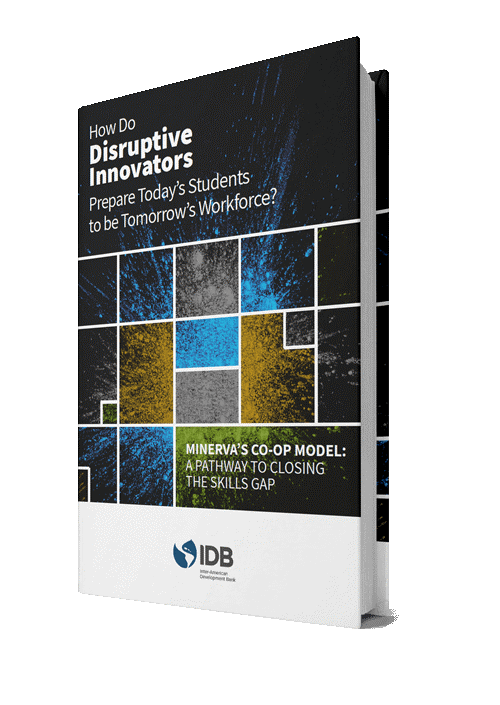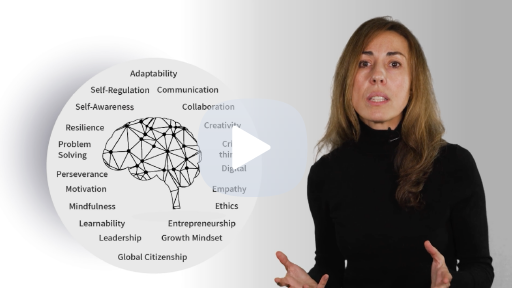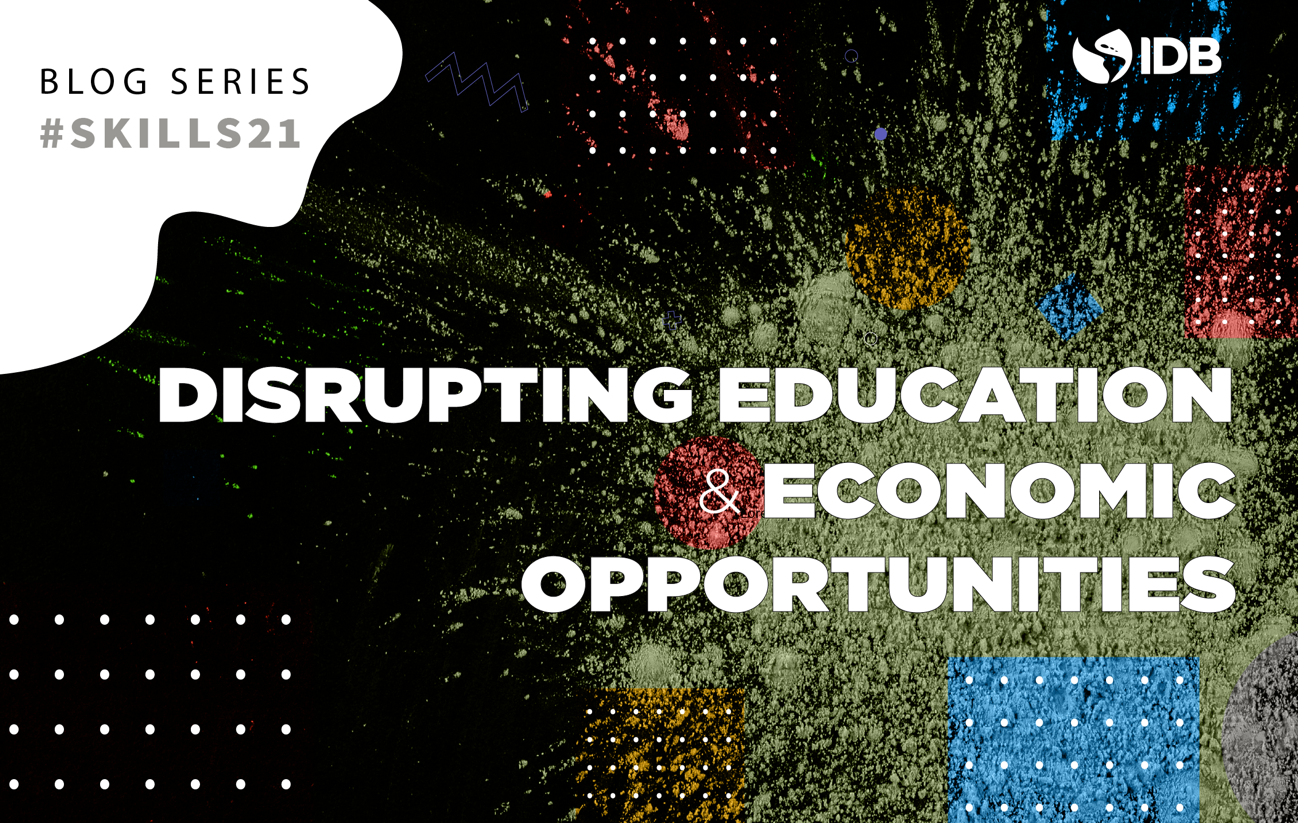Education is being challenged from many fronts: students are not learning what they need in the basics (literacy and numeracy); they are abandoning schools; they need to be prepared for jobs that don’t yet exist, and skills that were not traditionally taught (or at least not formally and effectively included as part of the curriculum and teachers training), are now in high demand. Schools are operating for a mass-production model and not necessarily for a knowledge-based digital economy. With significant exceptions, formal systems of human capital formation are experiencing serious difficulties to adapt, transform, and integrate new possibilities of learning, and teaching and to, ultimately, offer relevant and high-quality education for all.
As the saying goes “When a door closes, another one opens.” So, the failure of formal education and training services to adapt more rapidly is opening up opportunities for many non-traditional actors to jump in and progressively occupy spaces that were traditionally held by schools, universities, and formal education agencies. Market disruptors are attempting to solve the different challenges the sector is facing, and we are seeing a growing number of individual, private sector, and NGO initiatives responding to this new reality in a different and sometimes very effective manner.
Who are those game changers? How are they addressing the skill gap between what companies need and what workers can offer?
- Big companies like Google, Infosys, IBM, AT&T, or Amazon are creating their own cutting-edge in-house universities and programs to prepare new people for the jobs they will need, but also to upskill and reskill the workers they already have.

But not only big companies are behind the greatest changes. We have spotted a growing number of educational disruptive innovators ready to turn the system completely on its head.

- Minerva Project uses a collaboration model between higher education providers and employers in which students earn a bachelor’s degree in three years while also working part-time. This model provides students with the foundational skills and knowledge needed to become broad, interdisciplinary thinkers while also giving them valuable work experience. Student’s degrees are partly subsidized by an employer. Based on this successful undergraduate experience, Minerva has recently launched a four-year high school program called Minerva Baccalaureate in which students learn critical career competencies and are challenged to interconnect their learning and develop skills in complex critical thinking, advanced problem solving, and strategic decision-making.

- Scholas Occurrentes promotes projects around the world, by proposing different educational programs, linking technology, art, play, and sport. Its pedagogical approach focuses on the voice of students to address demotivation and dropout.

- New Pedagogies for Deep Learning (NPDL) is a Global Partnership in which educators all around the globe are collaborating to activate powerful, student- centered, real-world learning by fostering six Global Competencies (character, citizenship, collaboration, communication, creativity, and critical thinking).


- Global Alumni works with top universities around the world to transform their education programs and the students’ learning experience to adapt to the demands of today’s job market.

- Descomplica is changing the odds of thousands of underprivileged students in Brazil, by offering them school reinforcement, university entrance exams, public tenders, bar exams, graduation, and post-graduation courses, to compete in equal conditions with the wealthiest students in preparing university access.
And if we change the way we learn, we should also change the way we validate our knowledge. “Pouring” all your memorized knowledge on a piece of paper and get another piece of paper validating what you know, doesn´t seem the most suitable way to prove your worth anymore. Many platforms offer today digital assessments and certification, including badges and other forms of accreditation. Here we have for example among many others Degreed, Credly, Knackapp, Innovate+Educate, or Diwala.
Some governments are also doing their bit to connect youth with economic opportunities in a very innovative way. Generaciones Sacúdete (Shake It Up) is the name of a program that the Colombian Government is carrying out in collaboration with different public and private sector actors and civil society. A three stages methodology (inspire, focus, and transform yourself) to make sure that youth first reconnect and can create their own learning and professional journey, then develop the skills they need to follow that journey, and they finally can connect with entrepreneurs and employment opportunities to materialize their personal growth investment.
At the IDB, we are supporting the region with solutions for youth like this major policy reform Colombia is implementing. We are also offering a regional platform to help youth and individuals along their professional careers to assess, certify and showcase their skills, and, at the same time, build a regional network of peers and mentors. Its name is CLIC because education needs to be about making those connections: skills-employment-networks.
We have also partnered with a large network of innovators in the region, through a Coalition that brings public and private sector stakeholders together to adapt and strengthen learning ecosystems throughout Latin America and the Caribbean. In collaboration with HundrED and JP Morgan, we are expanding this network to identify the solutions that most effectively will help build skills for life in the region.
As Alexander Graham Bell said, “we often look so long and so regretfully upon the closed door that we do not see the one which has opened for us.” Let’s go through that open door and start looking at the future. It is our responsibility to our children and the future of the next generations.
Stay tuned and follow our blog series on education, economic opportunities and #skills21. Download the Future is now and keep an eye out for our news!

This series about Education 2030 is based on a keynote speech by Mercedes Mateo at HundrED Summit. HundrED –a not for profit organization which seeks and shares inspiring innovations in K12 education- is a member of the 21st Century Skills Coalition joined by different public and private organizations to promote the development of 21st century skills in Latin America and the Caribbean. Watch video here.


Leave a Reply